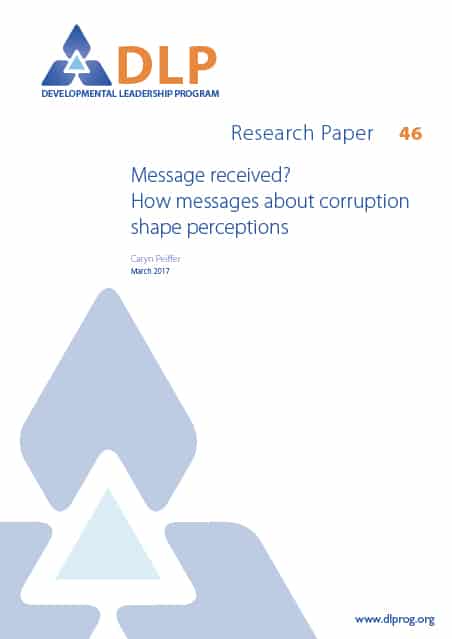Most anticorruption programmes include awareness raising about corruption and about efforts to tackle it. Yet so far there is little research evidence to show what impact such messages have. How – if at all – do they influence people’s beliefs about corruption or about fighting it?
This paper reports on an original survey experiment across 1,000 households in Jakarta that tested how four different messages affected respondents’ perceptions of corruption.
As expected, ‘negative’ messages on the widespread prevalence of corruption heightened worries about its ill effects, depressed confidence in the government’s anticorruption work and reduced the belief that ordinary people could easily join the fight against corruption. Surprisingly, however, ‘positive’ messages about government successes in controlling corruption and about how to get involved in tackling it tended to have the same effects. The paper discusses ways to make sense of these findings and what they could mean for anticorruption efforts.










